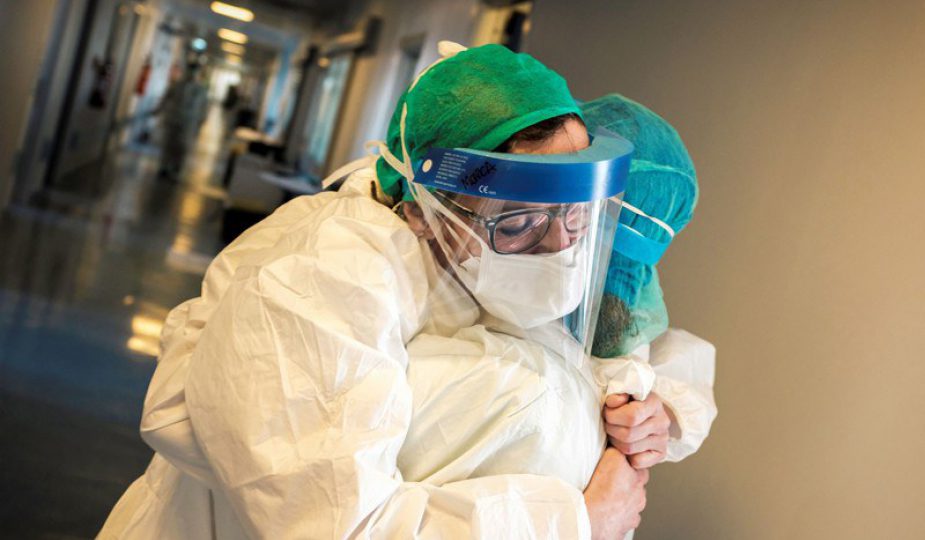ReAffirm Life: Living with the pandemic

“Covid-19, coronavirus, pandemic”. All obscure words that now dominate our everyday vocabulary in a way that would have been unthinkable just a year ago.
We live in an unprecedented time.
Unprecedented — another word that’s never seen so much use, now mentioned in every circumstance, be it about the economy, job market, medicine, theatres, aviation, restaurants, sports, or even insurance. So, in these unprecedented times, the findings of our 7th Global Consumer Study, backed by six years of comparative data, have an even greater significance. We’ve also added two new countries in this year’s study — Sweden, made famous this year for its unorthodox way of managing Covid-19, being one of them.
Something remains reassuringly stable. Our consumers continue to come across educated and tech-savvy, their awareness of insurance high and their desire for technology intact, in exchange for a better price or experience. Yet other aspects show an unparalleled shift. It ought to offer no surprise to anyone that the majority of consumers said Covid-19 will permanently change their perspectives on social distancing, personal hygiene and travel. The already celebrated phenomenon of “health is new wealth” has received a major boost. The importance of health, or rather, the appreciation of life, is now the main focus of our consumers’ minds. The number of consumers who choose “exercise” as their main target lifestyle improvement, and who would use health and wellness apps to help them stay fit and healthy, has increased significantly this year.
"Human empathy, human touch, human dialogue. These words are comforting, bringing warmth —something that’s never been so important."
贾娜 Chief Executive Officer
The year 2020 is a harsh reality education course for many of us on ‘how things can go horribly wrong’. While we digest the numbers (over 31 million Covid-19 cases and over 971,000 deaths globally at the time of writing), we have also seen floods, forest fires, bankruptcies, protests and political conflicts all unfold one by one in front of us. More than ever, as we appreciate the preciousness of our own lives, we become equally aware of just how uncertain life has become — acutely so. Consumer interest in seeking insurance, such as term life and critical illness to protect themselves and loved ones against uncertainties, has unsurprisingly risen as a result.
Paradoxes
But things aren’t always so straightforward in such times. Paradoxes are present, too. Although it’s widely established that senior citizens are more vulnerable to the coronavirus, they appear, for the most part, reasonably calm during the storm of this pandemic. It is actually the millennials who are more mentally stressed. The lockdowns, social distancing, bleak job market, loss of income and the uncertainties of the post-pandemic world are no doubt all contributors. In this year’s study, mental health is one aspect that we put a particular emphasis on — we seek to better understand the mental health of our consumers, and their comfort in disclosing such information with their insurers.
Another paradox is our desire for human contact despite rapid digitalisation. Globally it is incredible just how effective the coronavirus (and resulting lockdowns) has been at catalysing rapid digital transformations, both personal and corporate. Insurance is no exception. Our consumers acknowledge they have become much more open to technology and automation than before the pandemic. But intriguingly the trend for trust in automation of customer services or claims is reversed — we crave human contact more than ever, even as — or because — we live in an increasingly virtual world in which we stay in touch with colleagues, family or friends. Somewhat expectedly, the highly isolated older generation showed a far more pronounced preference for dealing with a fellow human being instead of a machine.
Listening to consumers, seizing the opportunities
Human empathy, human touch, human dialogue. These words are comforting, bringing warmth —something that’s never been so important. “Crisis” in Chinese consists of two words: wēi and jī (危机). Wēi means “danger”, jī means “opportunity”. It implies that for every danger that tragedy or hardship brings, there is an opportunity. Presently we still have a chance to turn this pandemic into a value accelerator rather than a wealth destroyer. Our consumers have spoken to us through this survey — it is now up to us to turn the heightened awareness of risk, the universally accepted virtue of good health, the openness to technology, to create our own game.
